MOT Bays
Concept Garage Equipment specialises in MOT Bays, MOT Bay Packages and MOT equipment for sale both online and over the phone. Concept GE is your one-stop shop for all your DVSA Approved MOT Testing Equipment. which will include MOT Bay Lifts and Ramps, Roller Brake Testers or Decelerometers, Gas & Smoke Emissions Testing Equipment, and Headlight Testers. From the initial conversation through the design of your MOT Bay, supply and installation of every piece of garage or MOT equipment even through to the DVSA VT01 application, we can help with everything to get your MOT business working and profitable as soon as possible. Talk to us about DVSA Approved MOT Connected Equipment.
To discuss your MOT bay requirements or any of the MOT Bays or MOT equipment for sale on this website call us today on 0113 469 0572.
We won’t be beaten on customer service, and more often than not we also won’t be beaten on price!
Showing all 24 results
-
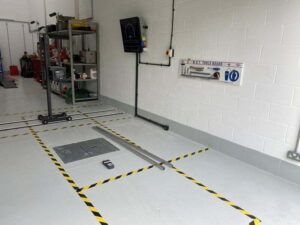
Class I & II MOT Bays FROM £10,995 (5)
-

Class IV MOT Bays FROM £20,495 (14)
-
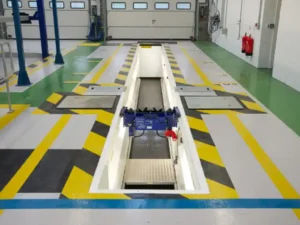
Class IV Pit MOT Bays FROM £19,995 (8)
-

Class VII MOT Bays FROM £23,295 (12)
-

Class VII Pit MOT Bays FROM £21,495 (8)
-

MOT Bays Design Supply and Installation
Read more -
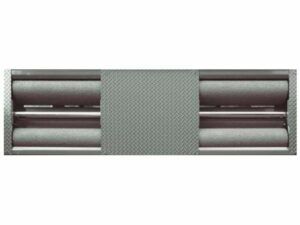
Roller Brake Tester (RBT) Class 7
Read more -
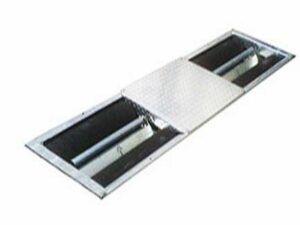
Roller Brake Tester (RBT) Class 4
Read more -

Headlight Beam Tester
Read more -

Brain Bee Emissions Tester
Read more -

Class 7 MOT Lift 4 Post 5 Tonne Lifting Capacity
Read more -

Class 4 MOT Lift 4 Post 4 Tonne Lifting Capacity
Read more -
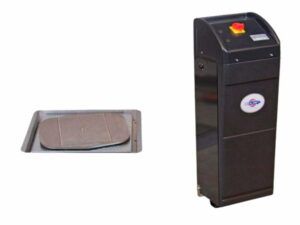
Play Detector Stand Alone for Steering and Suspension
Read more -

Play Detector In-Platform for Steering and Suspension
Read more -

Roller Brake Tester (RBT) Class 1 & Class 2
Read more -

MOT Bays Class 1 and Class 2 Motorcycle Package
Read more -
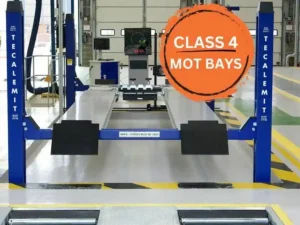
MOT Bays Class 4 Package
Read more -

MOT Bays Class 7 Package
Read more -

MOT Tools and ancillaries
Read more -
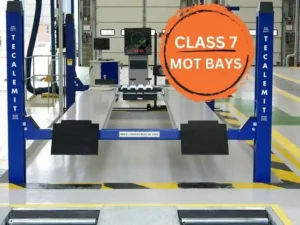
MOT Bay Class 7 Package with optional AEDM Training
Read more -

MOT Bay Class 4 Package with optional AEDM Training
Read more -

Combined Smoke and Gas Vehicle Emissions Analyser Wireless
Read more -
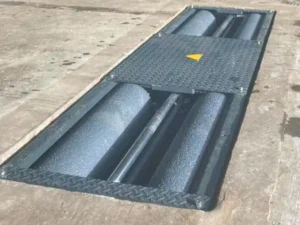
Brake Roller Re-Gritting Service
Read more -

Load Testing Lifting Equipment
Read more -
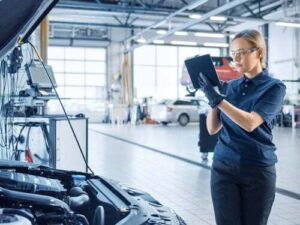
Total Support for MOT Bays
£650.00 – £2,450.00 +VAT Select options -
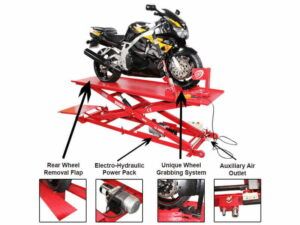
Motorcycle Lift – Eurotek Scissor Lift BL500
£1,395.00 +VAT Add to basket -
Sale!
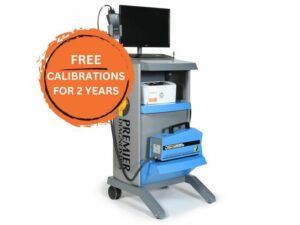
Further Reduced
Combined Petrol and Diesel Vehicle Emissions Analyser
Original price was: £5,395.00.£5,250.00Current price is: £5,250.00. +VAT Add to basket -
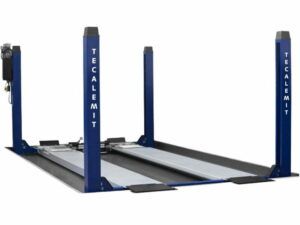
4 Post Lift 4 Tonne Class 4 MOT ATL Lift and OPTL
£11,495.00 +VAT Add to basket -

4 Post Lift 4 Tonne MOT Lift Class IV (ATL & OPTL)
£11,499.00 +VAT Add to basket
What is an MOT?
In the UK, an MOT is mandatory on a car once it has been 3 years old. An MOT is a test required by law in the UK to be carried out on every car annually.
Before your car goes through its MOT, you should take your car to an MOT bay to ensure it meets the legal requirements of the MOT.
The MOT test is conducted on a vehicle to make sure it can be driven safely and is roadworthy. It is basically a test where the MOT examiners check the car to make sure that it meets required safety standards.
Assuming all tests are passed then an MOT Certificate is the legal document issued by the DVSA which shows that the car has been inspected by a professionally qualified MOT test engineer and has met certain criteria.
What is an MOT Bay?
An MOT Bay is a place where vehicles can be tested for their MOT requirements. The garage will usually have a vehicle lift or inspection pit where vehicles can be fully inspected and have their MOT requirements checked to ensure they comply.
Some of the MOT tests for vehicles in the UK include testing the wheels, brakes, vehicle emissions and headlight adjustments for example.
MOT garages are a great place to have your vehicle checked and repaired if it needs it. They are also a good place to get information about the MOT regulations and keep up to date with current MOT laws also.
However not all garages are qualified to perform MOT tests and as a vehicle user, it is important to check that the garage you choose has all of the required equipment and training to do the MOT test correctly.
Any garage who have the experience, training and equipment to perform vehicle MOT inspections, naturally gets more work, as cars, motorcycles and other vehicles are being checked more frequently on their premises.
MOT bays were originally designed to provide motor vehicle testing and repair services. They are now used primarily as car repair shops, and often advertise their services as MOT bays. Most of the largest MOT bays in the UK are franchised dealerships, although some independent garages and small chains also offer MOT testing. The majority of smaller MOT bays can be found in local independent garages.
Over the years, MOT bays have evolved into a one-stop shop for all your vehicle needs. Whether you need a full service, a diagnostic, or a simple tyre rotation, you can pop into an MOT bay and get everything you need under one roof. No need to call out different specialists for different jobs, just head to an MOT bay and get all the vehicle services you need in one place.
MOT bays, also known as MOT testing stations or car servicing stations, are the locations where vehicles are inspected for roadworthiness—also known as an MOT test.
What is an ATL MOT Bay?
The Automated Test Lane, or ATL, is an automated testing facility. An ATL bay can perform multiple vehicle tests, such as a full vehicle inspection, a vehicle diagnostic and a vehicle service. An ATL bay is a great option for large vehicle services, such as oil changes, where it makes sense to have multiple services performed on a single vehicle. An ATL bay can save time and money compared to having multiple services performed on multiple vehicles.
What is needed to be an MOT test centre?
First, you will need to make sure that you have the correct training and qualifications to become an MOT tester in the first instance. Without the correct qualifications, you will not be approved by the Drivers and Vehicle Standards Agency (DVSA). You will also need to decide who should become the AEDM (Authorised Examiner Designated Manager).
If you have one site, then this would need to be a director or sole trader of the business. This person would also need additional training to carry out the role of AEDM.
You will also require premises that comply with the Drivers and Vehicle Standards Agency (DVSA) regulations. For example, you will need the height, length and width required for the classes of vehicles you would be testing. Also that the door and any openings to the MOT bay in and out meet the minimum width and height required.
There is a lot to think about before taking on any commitment with premises. You are strongly advised to have these important dimensions checked by a qualified competent person before deciding on any premises.
Once you have decided on the training and the premises meet the required dimensions you will need to think about the range of equipment you would like to become an approved MOT test Centre. The range of equipment can be…
- Vehicle lift/ramp/pit
- Headlamp Beam Tester
- Roller Brake Tester
- Emissions Tester
- Decelerometer
- Various hand-held tools
- Tool board and signage
This is not a list of every possible piece of MOT Bay Equipment you may need, as every MOT Bay is different, but please call us today to discuss how we can help you set up or upgrade your MOT Bay on 0113 469 0572.
What are the different classes of MOT Bay?
The class of MOT Bay depends on the type of vehicles your garage intend to work on, as per the gov.uk website, and shown in the table below.
| Vehicle | Vehicle class | Age first MOT needed (years) |
| Motorcycle (engine size up to 200cc) | 1 | 3 |
| Motorcycle with sidecar (engine size up to 200cc) | 1 | 3 |
| Motorcycle (engine size over 200cc) | 2 | 3 |
| Motorcycle with sidecar (engine size over 200cc) | 2 | 3 |
| 3-wheeled vehicles (up to 450kg unladen weight) | 3 | 3 |
| 3-wheeled vehicles (over 450kg unladen weight) | 4 | 3 |
| Cars (up to 8 passenger seats) | 4 | 3 |
| Motor caravans | 4 | 3 |
| Quads (max unladen weight 400kg - for goods vehicles 550kg and max net power of 15kw) | 4 | 3 |
| Dual purpose vehicles | 4 | 3 |
| Private hire and public service vehicles (up to 8 seats) | 4 | 3 |
| Ambulances and taxis | 4 | 1 |
| Private passenger vehicles and ambulances (9 to 12 passenger seats) | 4 | 1 |
| Goods vehicles (up to 3,000kg design gross weight) | 4 | 3 |
| Class 4 vehicles (9 to 12 passenger seats) with a seat belt installation check | 4a | n/a |
| Private passenger vehicles and ambulances (13 to 16 passenger seats) | 5 | 1 |
| Private passenger vehicles and ambulances (more than 16 passenger seats) | 5 | 1 |
| Playbuses | 5 | 1 |
| Class 5 vehicles (13 to 16 passenger seats) with a seatbelt installation check | 5a | n/a |
| Class 5 vehicles (more than 16 passenger seats) with a seatbelt installation check | 5a | n/a |
| Goods vehicles (over 3,000kg up to 3,500kg design gross weight) | 7 | 3 |
What are the correct MOT Bay Dimensions for each Class of MOT?
MOT Bays can be created in various lengths and dimensions depending on the configuration.
The most fundamental part of planning to open a new MOT station is to ensure the premises are suitable for the class or classes of vehicle you wish to test.
MOT Bays come in various classes - Class 1,2,4 & 7 are the DVSA Approved MOT Testing classes
Click here to find out what the different classes of MOT Bay are.
The length of the MOT bay will also be dependent on your choice of equipment and the premises. For example, an MOT bay has a standard configuration of the Headlamp Beam Tester, then the MOT Lift / Ramp, and then the Roller Brake Tester (RBT).
Another important factor to consider will be is whether your MOT ramp is surface mounted or recessed. Again, this is dependent on the space available within your premises.
Class 4 MOT Bay dimensions
The overall width of a class 4 MOT bay is 3600mm
Imagine a glass box around your MOT ramp - and this must be extended 500mm from the outer edges of each platform left and right, 500mm to the rear of the ramp and 1000mm out from the drive on the end of the ramp. This glass box must be 3800mm high.
Class 7 MOT Bay dimensions
The overall width of a class 4 MOT bay is 4200mm
Imagine a glass box around your MOT ramp - and this must be extended 500mm from the outer edges of each platform left and right, 500mm to the rear of the ramp and 1000mm out from the drive on the end of the ramp. This glass box must be 4800mm high.
More information on MOT Bay dimensions
How long is an MOT Bay?
The length of the MOT bay will be dependent on the class of vehicles you intend to work on, the choice of garage equipment and both the layout and size of your premises.
Click here to find out what the different classes of MOT Bay are.
- The overall width of a class 4 MOT bay with an inspection pit or ramp is 3600mm
- The overall width of a class 7 MOT bay with an inspection pit or ramp is 4200mm
Another important factor to consider with your MOT Bay dimensions will be whether your MOT ramp is surface mounted or recessed. Again, this is dependent on the space available within your premises.
For a full detailed answer and specific dimensions for the different classes of MOT Bays, please see our article on this subject:
What is the minimum size for a MOT Bay?
The width of a standard class 4 MOT bay is 3600mm wide, and for a class 7 MOT bay, the space required significantly increases to 4200mm wide. However, there are many ways to lay out an MOT bay which is dependent on what space you have available.
For example, you could have what’s called an inline bay. This consists of the roller brake tester behind the MOT lift with the headlamp beam tester being located in front of the MOT lift.
Another way you could lay out the MOT bay could be side by side which needs more width than if it was in line.
The smallest space you would need also depends on the equipment you purchase. For example, one of the Drivers and Vehicle Standards Agency (DVSA) regulations states that you must have 600mm behind the headlamp beam tester to allow for safe operation. If you purchase a headlamp beam tester that is slightly smaller, then this would reduce the space in which it would be installed.
The easiest way to answer this is to base it on a standard MOT bay inline. If for whatever reason you don’t have what’s required then there are ways to save space which could allow it to fit into your chosen location and be within DVSA’s regulations.
Below is what is advised but again there are options for different layouts if space will allow you to do this.
- Using an MOT lift with a platform length of 4300mm (normally if you have space you would purchase a lift with a platform length of 4800mm or above).
- Headlamp beam test area – 1500mm (at the very most)
- Lift (recessed into the floor) – 4300mm (a recess of 4500 would be required)
- Between the lift recess and roller brake tester – 600mm
- Standard ATL brake tester – 710mm (some are 680mm but depends on the manufacturer)
- From the roller brake tester to the external door 1500mm (if the door is wider than 3500mm this measurement can be reduced to 1000mm)
The minimum length for this layout would be – 8810mm. This measurement can increase or decrease slightly if required depending on your garage layout.
The width of a standard class 4 MOT bay is 3600mm wide. Again, you must consider the layout and any adjacent walls or obstructions that may cause the bay to be moved. You must also adhere to the 600mm rule from any obstructions such as walls, pillars, or other equipment.
For a class 7 MOT bay the space required significantly increase to 4200mm wide and using a class 7 MOT lift which will also be longer. Normally it would be a 5200mm platform or 5700mm platform.
For a complete explanation of the dimensions for different classes of MOT Bays, please see our article on this subject:
If you are unsure of how to best layout your MOT bay out then give us a call on 0113 469 0572 and we will conduct a free site survey for you.
What is MOT connected equipment?
From 1st October 2019, The Driver and Vehicle Standards Agency (DVSA), in association with the Garage Equipment Association (GEA) announced they would be enforcing the use of Connected Equipment for MOT testing across the UK, meaning that all new or replacement MOT testing equipment must be able to connect to this new electronic recording service.
However, due to the number of garages, manufacturers and pieces of equipment involved, the rollout of this new legislation was to be phased in over several years, from the proof of concept in Q3 2018, the first piece of equipment this applies to in a live environment was roller brake testers (RBTs). The rule applied to all new or replaced RBTs from 1 October 2019.
What is the DVSA VT01 Application form?
DVSA VT01 form must be completed to apply to set up or change an MOT test station, including becoming an Authorised Examiner (the person or business that runs it).
Where to get the VT01 Form
You can download the VT01 form from the gov.uk website publications section regarding the VT01 application process, or by clicking this VT01 Download Link.
After looking at the DVSA VT01 form for the first time the process can seem extremely daunting. The information below will give you everything you will ever need in completing the VT01 application yourself. Read on for all the supporting documents you will need to support your application.
How can I get more help with the VT01 Form?
Firstly have read of our thorough blog post on the subject:
VT01 Form – Setting Up an MOT Test Station
We can offer you advice over the phone at 0113 469 0572, help with the application itself and on-site MOT Bay design, MOT equipment supply, installation and staff training in the correct use of the MOT equipment.

